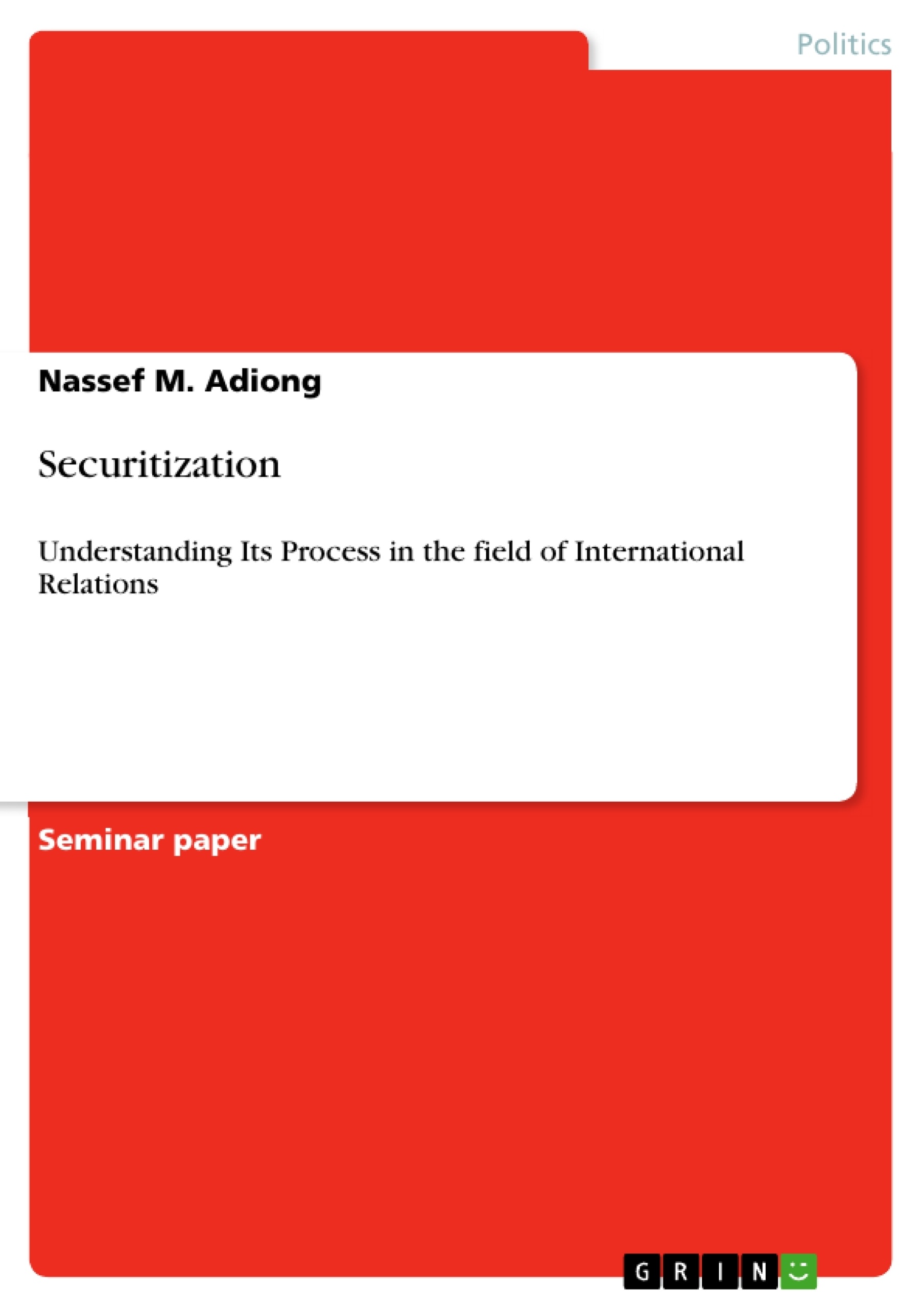In its broadest and academic term, “security” has been defined contemporarily by Buzan and Wæver (1998) as being that special type of politics in which specified developments are socially constructed threats, having an existential quality to cover values and/or assets of human collectivities and leading to a call for emergency measures. However, surveying the old traditional perceptions of security dating back from Plato, Aristotle, Confucius, to Rousseau, Kant, Kautilya, to Hobbes, Machiavelli and to Morgenthau, I found out a linkage of a security study in answering human’s physiological needs that is interpreted in varied disciplines from Philosophy, Political Science to International Relations. Their arguments were presented in the study done by Solidum et al (1991, p. 13-16), to Plato such path leading to security was presented in his ideal republic. The total security, both spiritual and material, was brought about the creation of a new society and all its institutions based on the right principles of social existence. Plato related these principles to the idea of the universal Good as governing nature.
For Aristotle the quest for security was connected with his idea of fullness of being and ideal nature. This took the form of instinctive striving after perfection as embodied in the species. In the area of man’s social or political life, security arrangements manifested themselves in certain types of social systems said to be harmony with nature or in conformity with man’s striving after full development of himself or the Good’s life. For Confucius security was associated with commitments to certain universal principles of conduct. The ultimate aim was to bring about a condition of universal social harmony and stability. Goodness of human nature was often assumed which, if damaged, could be restored mainly by proper education.
Table of Contents
- Historical and Philosophical Bases of Security Studies
- The Copenhagen School on Securitization Framework: Conceptualization of the theory
- The Singaporean School on Securitization Framework: Defining an Asian perspective
- Conclusion: A critique both on the Copenhagen and Singapore securitization frameworks
Objectives and Key Themes
This seminar paper analyzes the historical and philosophical underpinnings of security studies, focusing on the conceptualization of securitization as a theoretical framework. The paper investigates how the Copenhagen School's securitization framework, particularly its methodology and its impact on understanding security issues, has evolved. It also explores the critiques made by the Singaporean School regarding the Copenhagen School's approach and proposes an alternative perspective. The paper aims to provide a general framework and guidelines for further research and discussion on security issues.
- Conceptualization of security and its evolution from traditional to non-traditional perspectives
- The Copenhagen School's securitization framework and its key elements
- The Singaporean School's critique of the Copenhagen School and its proposed alternative framework
- The impact of historical events and changing geopolitical contexts on the understanding of security
- The relationship between security, political economy, and other disciplines.
Chapter Summaries
- Historical and Philosophical Bases of Security Studies: This chapter examines the evolution of security studies from its philosophical roots to contemporary understandings. It traces the ideas of influential thinkers such as Plato, Aristotle, Confucius, Rousseau, Kant, Kautilya, Hobbes, Machiavelli, and Morgenthau, demonstrating how their perspectives contributed to the development of security concepts.
- The Copenhagen School on Securitization Framework: Conceptualization of the theory: This chapter focuses on the Copenhagen School's securitization framework. It explores the framework's key concepts, methodology, and its application to the study of security issues. The chapter also examines the role of social construction in defining security threats and the importance of understanding the "securitizing act."
- The Singaporean School on Securitization Framework: Defining an Asian perspective: This chapter analyzes the critiques of the Copenhagen School's securitization framework presented by the Singaporean School. It explores the limitations of the Copenhagen School's approach and proposes an alternative framework that is more relevant to the Asian context.
Keywords
This paper focuses on key terms and concepts including security, securitization, international security, non-traditional security, Copenhagen School, Singaporean School, historical context, philosophical foundations, security studies, and policy-making.
Frequently Asked Questions
What is the core definition of "security" in this study?
Security is defined as a socially constructed threat that leads to a call for emergency measures to protect the values or assets of human collectivities.
What is the "Copenhagen School" of securitization?
The Copenhagen School provides a framework for understanding how issues are transformed into security threats through a specific "securitizing act" or speech act.
How does the "Singaporean School" differ in its perspective?
The Singaporean School critiques the Copenhagen School's approach and proposes an alternative framework more suited to the Asian geopolitical context.
Which historical philosophers influenced modern security studies?
The study traces security concepts back to Plato, Aristotle, Confucius, and later thinkers like Hobbes, Machiavelli, and Morgenthau.
What is the difference between traditional and non-traditional security?
Traditional security focuses on military threats and states, while non-traditional security includes social, economic, and environmental threats to human collectivities.
How does political economy relate to securitization?
The paper explores the relationship between security issues and the broader political-economic environment in which they are constructed.
- Citation du texte
- Nassef M. Adiong (Auteur), 2009, Securitization, Munich, GRIN Verlag, https://www.grin.com/document/125925



